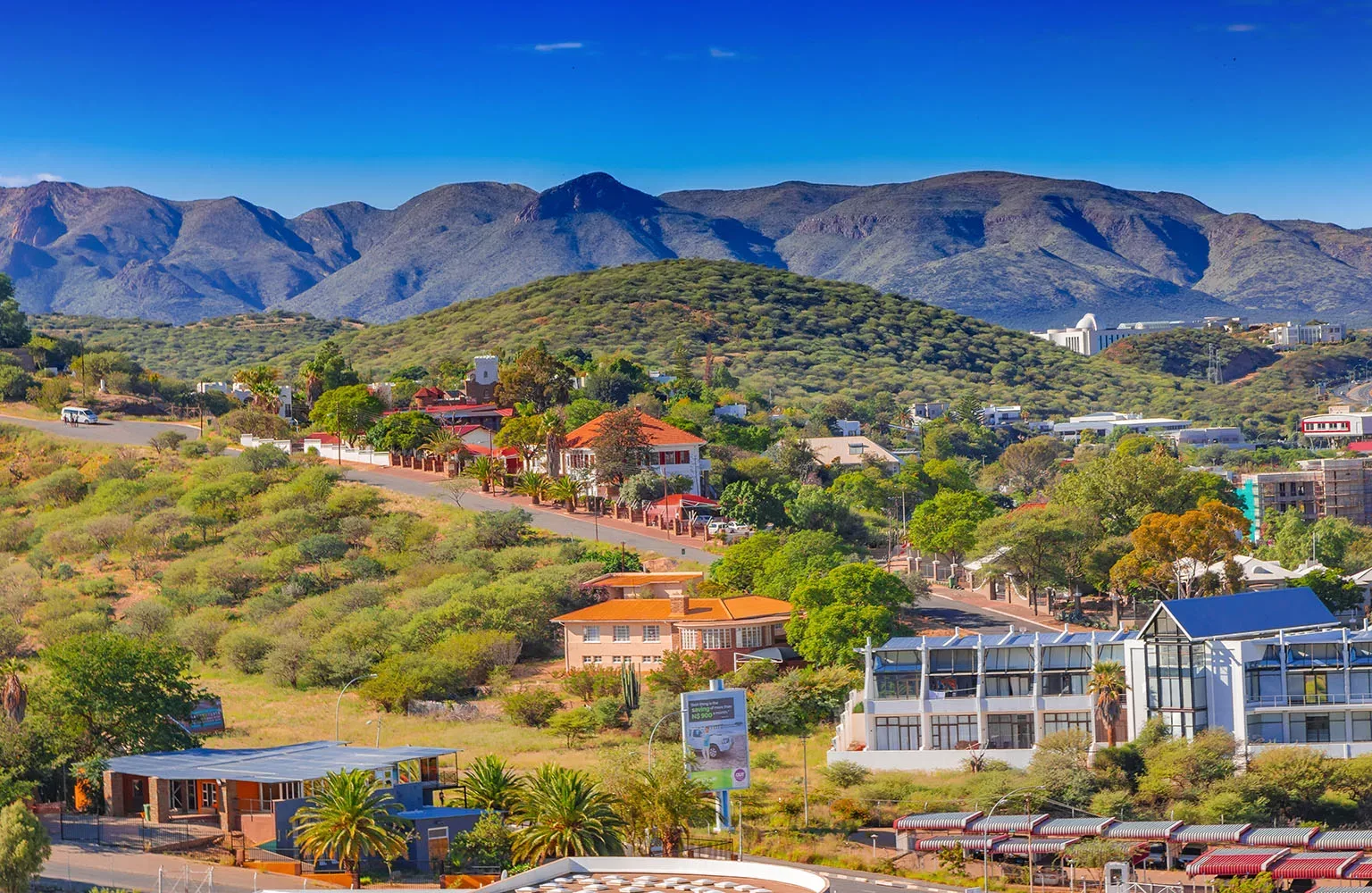Striving to be a sustainable and caring city by 2027, we explore the ways in which the City of Windhoek enhances the quality of life for its people and facilitates socioeconomic growth.
NAMIBIA’S URBAN CENTRE
As Namibia’s only city, Windhoek is quickly transforming into an urban metropolis at the centre of the country.
Positioned at the helm of the area’s development is the City of Windhoek (CoW), a municipality that delivers services to the region to maintain the well-being of its residents and business landscape.
Established under the Local Authorities Act 23 of 1992, it provides comprehensive services around water and electricity supply, waste management, sewage collection and disposal, roads and stormwater drainage, entertainment and welfare, and much more.
A highly proactive administration, CoW only provides the best for its residents by ardently maintaining strong client relations worldwide and ensuring that it meets people’s expectations of its services.
A HISTORY OF PERSERVERENCE
Despite now existing as a place of expansion and innovation, Windhoek’s first recorded settlement groups were attracted by the abundance of hot springs that populated the region.
Consequently, the area garnered the name of ‘Ai-Gams’ from the Nama people, translating to ‘fire water’, and ‘Otjomuise’ by the Herero tribe, translating to ‘place of steam’, both of which relate to the plentiful resources that surrounded them.
In the mid-19th century, Jan Jonker Afrikaner settled in the area and was the main mediator between the two warring groups at the time.
Afrikaner’s influence quickly grew as he soon became a significant figure in Windhoek’s history, building a stone church that was large enough to house 500 people before becoming a school soon after.
Despite prospering under two Rhinesh missionaries named Hugo Hahn and Heinrich Kleinschmidt under German rule in the subsequent years, disaster struck the region towards the late 1800s when war broke out across Namibia, destroying many of Windhoek’s resources.
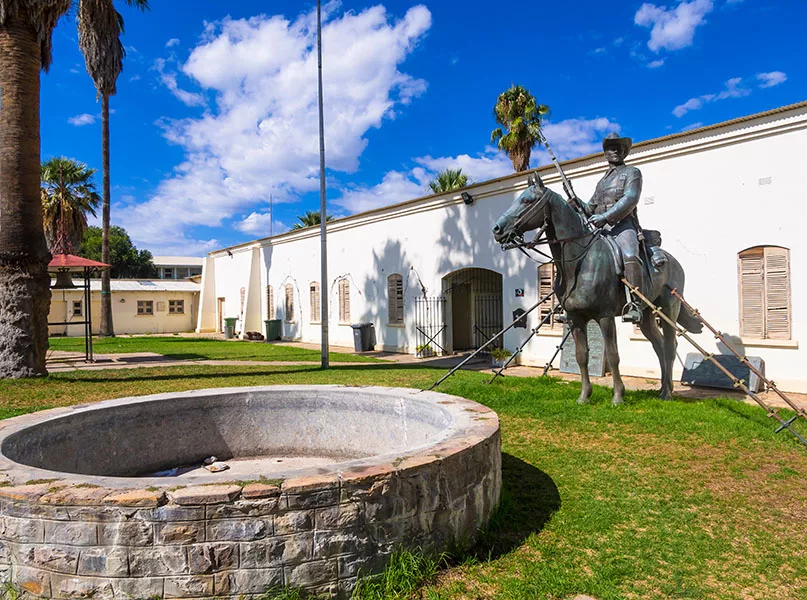
However, a turning point in the area’s history occurred when colonial Windhoek was founded in October 1890 by Imperial German Army Major, Curt von François, who laid the foundation stone at what is now known as the Old Fortress.
In the following 14 years, Windhoek gradually became more administrative as both government and private buildings were erected, whilst agricultural holdings were established for fruit, tobacco, and dairy cattle farming.
By 1907, Windhoek had welcomed many settlers from South Africa and Germany, which triggered the inception of many businesses along Independence Avenue, then known as Kaiser Street, coupled with a selection of houses and three magnificent castles.
The German colonial era came to an end after World War I, before Windhoek gained access to more capital following World War II to improve the area’s economy.
Infrastructural development gained momentum as a result, with large public projects undertaken in the 1950s including the building of new schools and hospitals, the completion of road networks, and the construction of dams and pipelines to create a stable water supply for Windhoek’s residents.
Finally, Namibia’s independence in 1990 opened the doors to significant international investment, which allowed the city’s suburbs to develop and the infrastructure to significantly increase paving the way for Windhoek’s innovative business future.
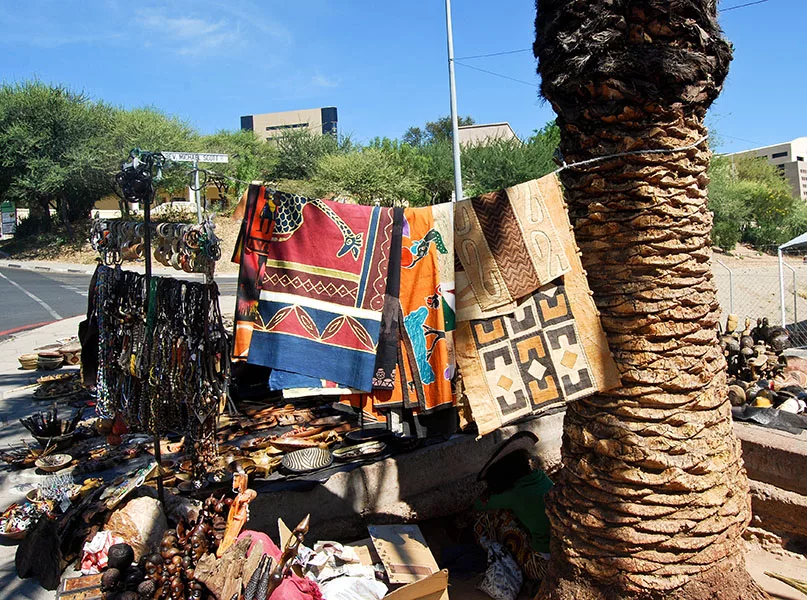
COLLECTIVE POWER
Following Windhoek’s turbulent history and the opportunities afforded by Namibia’s independence, CoW champions the idea of collective leadership to implement legislation and changes that have a meaningful and positive impact on the people.
Despite being positioned at the centre of the administrative government, Windhoek’s mayor ensures that decisions are made in collaboration with other stakeholders, meaning that all those impacted have a say in what happens to the operational environment of the city.
Alongside their administrative duties, as a public figure, the mayor boosts morale amongst the city’s residents by attending important events such as business openings, school events, and community functions.
The mayor’s executive power was established, and is still set out by, the Local Authorities Act 23. These powers include the ability to initiate and formulate planning and development policies, establish and promote the creation of employment, closely monitor the implementation of policies, and be accountable to the inhabitants of the local authority.
On top of these duties, the mayor must always act in consultation with the municipal council and investigate and endeavour to solve any issues relating to the local authority.
As a result, the mayor’s ultimate role is to ensure the creation and growth of social well-being for the city’s 500,000 residents.
Working diligently alongside the mayor to ensure the security and prosperity of CoW is the Office of the Chief Executive Officer.
Within this department, the Corporate Communication, Marketing, and Public Participation division is responsible for creating and promoting strong relations with stakeholders and maintaining CoW’s positive reputation across Namibia.
The division manages and oversees all corporate communications across the municipal organisation and its stakeholders. This is conducive to building a relationship with the public, producing newsletters, responding to media and public enquiries, and maintaining CoW’s digital presence.
The marketing and events management section works hard to promote the corporate image of CoW, emphasising how it is a dynamic and responsible organisation that strives to meet the needs of its residents. The team also advocates for Windhoek as a destination of choice, which in turn advances the region’s economic landscape.
Thirdly, the public participation section drives CoW’s public participation strategy by ensuring that everyone is involved in the area’s developmental agenda. On the other hand, the team also closely listens to any public grievances, which are then incorporated into the city’s strategic formulation and development plans.
Additionally, the public participation section also coordinates and conducts the establishment of neighbourhood committees, whilst raising awareness and educating residents and stakeholders about the city’s council programmes and services.
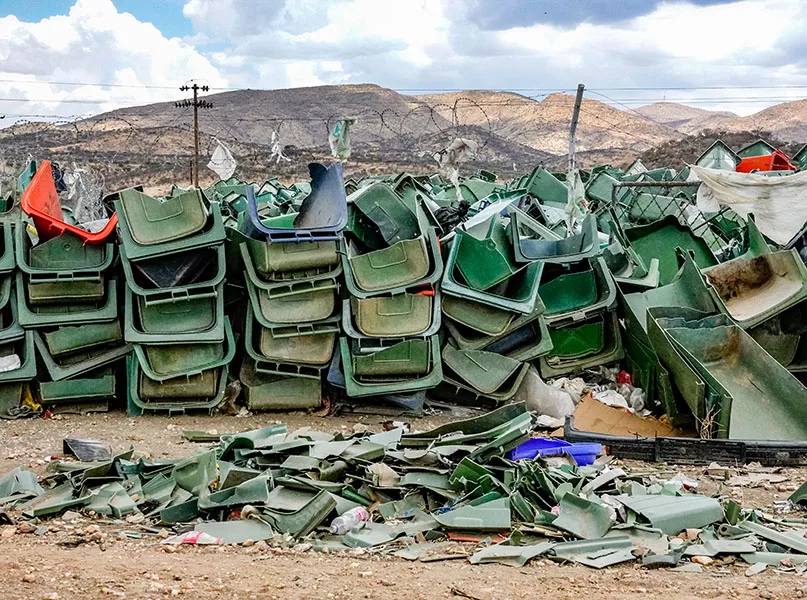
A STREAMLINED ORGANISATION
CoW’s myriad departments, which include City Police; Electricity; Finance and Customer Services; Infrastructure, Water, and Technical Services; ICT; Human Capital and Corporate Services; and Economic Development and Community Services, amongst many others, are integral to the smooth running of Windhoek.
Regarding the latter, CoW’s Health and Environment Services division is an integral component of the department’s activities. These include the monitoring and controlling of all business operations within the municipal area, as well as safeguarding the environment and managing natural resources.
Moreover, the division controls and prevents communicable and noncommunicable diseases, whilst also coordinating the municipal council’s role in disease prevention and control according to the Ministry of Health and Social Sciences.
Finally, the Health and Environment Services division ensures the safety of food and water across the municipal area and a clean, safe environment throughout the city.
Elsewhere, the Department of Housing, Property Management, and Human Settlements is critical for maintaining the city’s property ladder, whilst also ensuring that the environment remains habitable.
For example, the Housing and Land Delivery division of the department accounts for the delivery of serviced land and housing for the residents of Windhoek. As part of this, the team is committed to the establishment of sustainable infrastructure funding models that are supported by comprehensive cost recovery and revenue protection mechanisms.
Additionally, the Geomatics team ensures that any valuated and approved properties are appropriate for the region, following the provision of land surveying and mapping services.
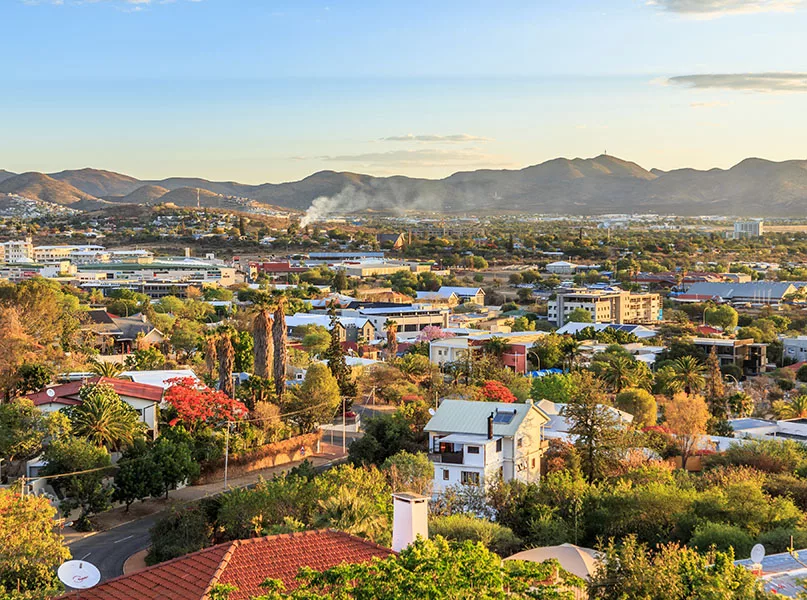
BUILDING INFRASTRUCTURE
CoW recently launched the Affordable Housing Programme to cater for the needs of low to middle-income residents, thus boosting the social well-being of a large demographic group.
The programme offers different types of houses ranging in price from NAD$300,000 to NAD$650,000. Currently in the piloting phase, eight trial houses are being constructed in Khomasdal, with a further 77 housing units in the application stage.
Going forward, CoW plans to expand the Affordable Housing Programme to other suburbs of Windhoek, including Cimbebasia, Otjomuise, and Rocky Crest, where it aims to build at least 200 houses.
Road maintenance has also recently been completed in other areas of the city’s suburbs, including Havana and Goreangab, in the hope that it will enhance the infrastructure and safety of the area’s streets.
CoW’s other projects include the refurbishment of the Sam Nujoma Stadium, after spending NAD$3.2 million over a decade ago on a feasibility study for the ground’s eventual upgrade.
In addition, Windhoek, alongside its sister city of Bremen in Germany, recently implemented a state-of-the-art solid waste management strategy.
Partially funded by the European Union (EU), the project strives to reduce the amount of waste that goes to landfill, increase the city’s recycling rate, and generate local job opportunities.
It is also hoped that the solid waste management strategy will help Windhoek return to its former glory as one of the cleanest cities in Africa. The project will additionally help to spread environmental awareness and generate a greater green consciousness across the city.
This mindset will likewise filter into the city’s education system, as the benefits of waste reduction and recycling will begin to be taught in schools.
A waste buy-back centre was additionally introduced last year in the centre of the city, which recycles, packages, and manages different types of waste. The centre recycles up to 2,000 tonnes of refuse and has 100 drop-offs per month, substantially impacting the sustainability of the city.
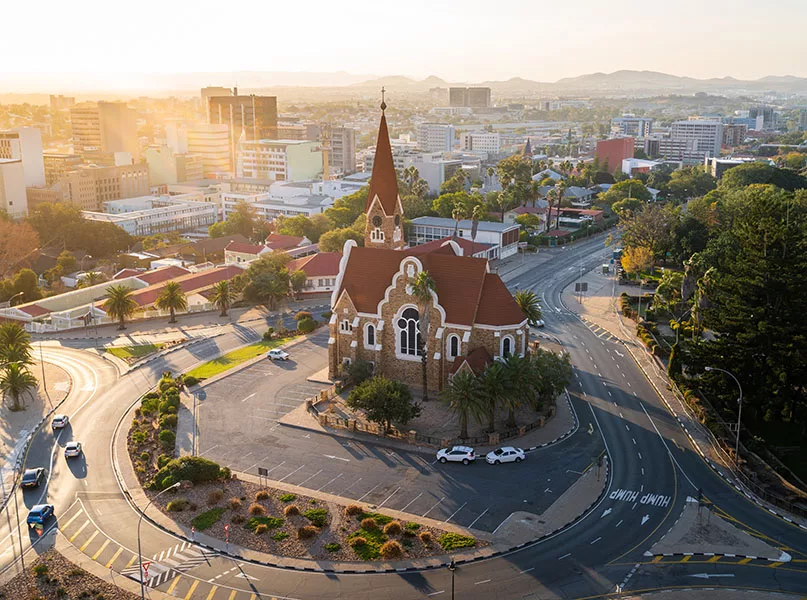
EMPOWERING WINDHOEK’S YOUTH
As part of CoW’s social development, it strives to progress the city’s corporate realm by expertly and regularly identifying any areas in which both small to medium-sized enterprises (SMEs) and larger companies are struggling, before expertly providing solutions to address their grievances.
The Economic Development division, a key part of the Department of Economic Development and Community Services, recently introduced a local economic development strategy to create a database that could efficiently monitor the city’s businesses.
As a result, CoW was able to create a highly proficient Business and Training Development Unit that is purpose-built to develop the capacity, skills, and knowledge of entrepreneurs, whilst inspiring others to enter into the city’s corporate arena.
The programme is conducted on a monthly basis at the ICT Training Centre located in the Oshetu Community Market using 10 state-of-the-art computers.
The Business and Training Development Unit is offered to all company owners in Windhoek, as well as those classed as youth entrepreneurs between the ages of 18 and 35, to empower and strengthen the city’s future.
Urging a similar sentiment, CoW’s Junior Council has become a key initiative of the municipality’s Social and Youth Development division.
By being a part of the council, younger generations can garner extensive knowledge of civic affairs and set an example for other learners to participate. The Junior Council also acts as a proactive form of communication between school learners and CoW, enabling the administration to reach out to the city’s younger audiences.
Most importantly, the Junior Council creates a platform whereby vital business skills and future leaders can be cultivated.
This represents CoW’s overarching aim to transform Windhoek into a city for future leaders and act in the interests of its people.
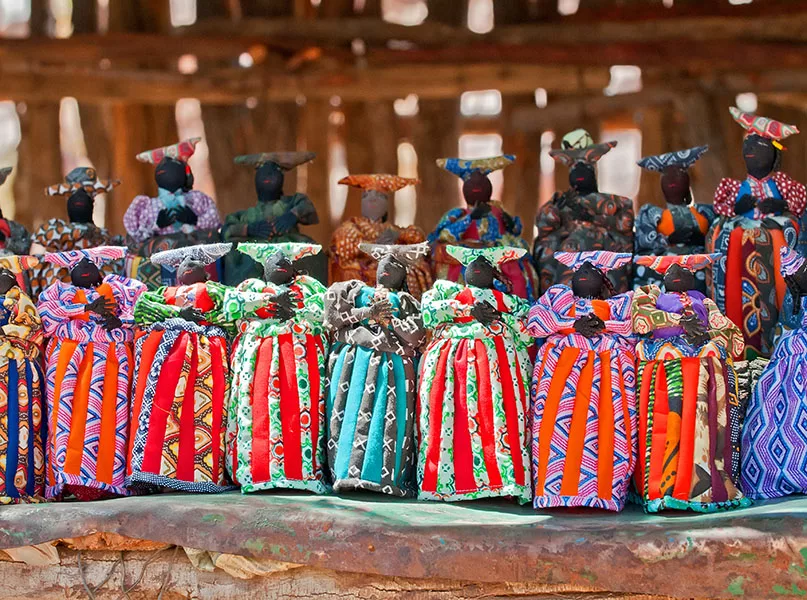
CITY OF WINDHOEK PARTNER




